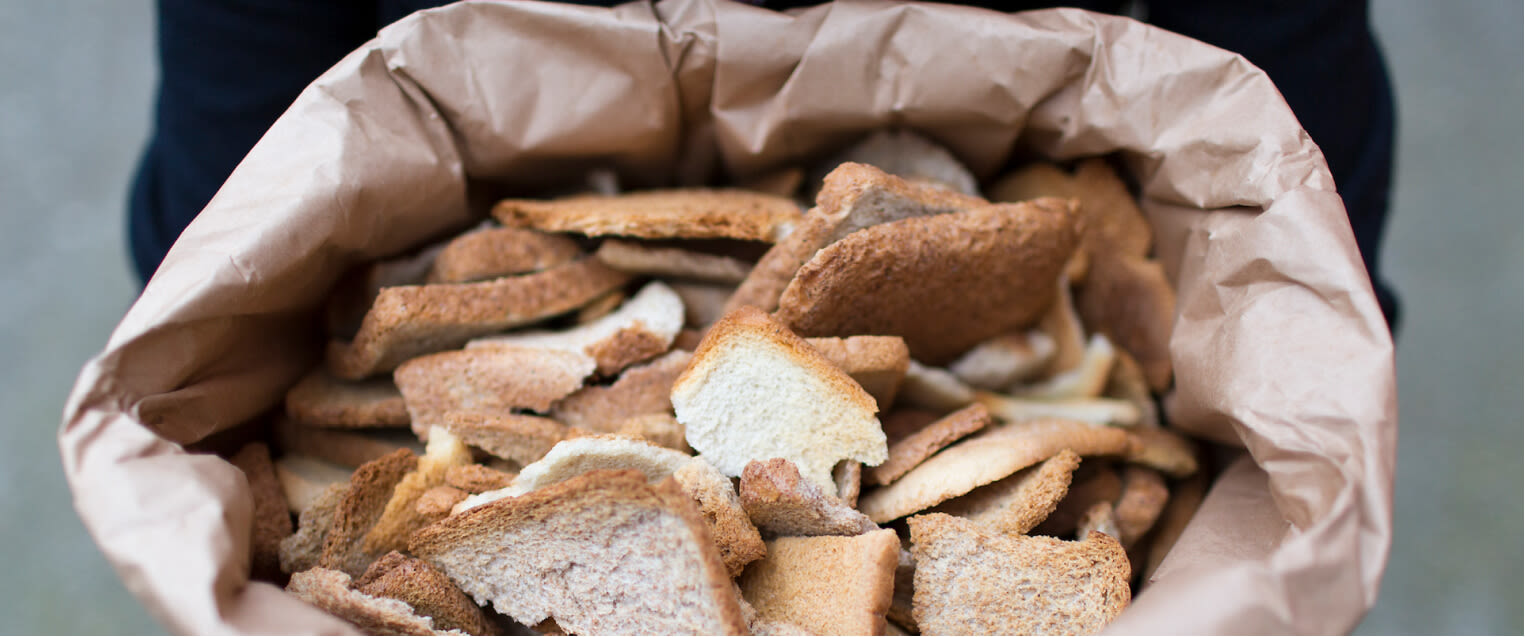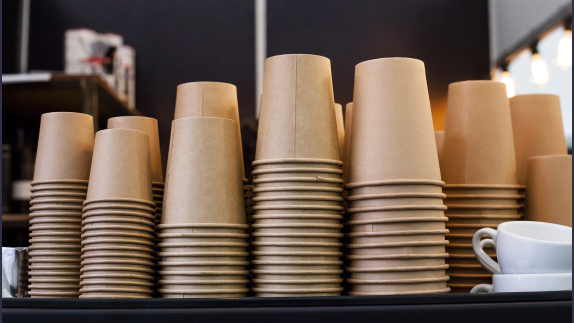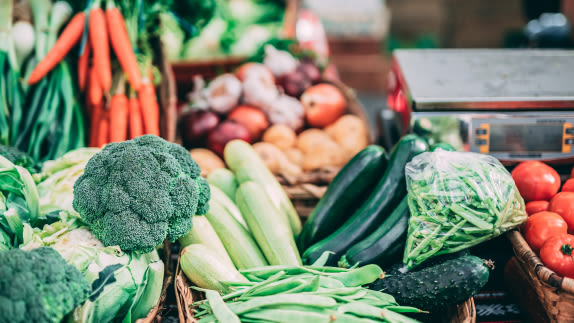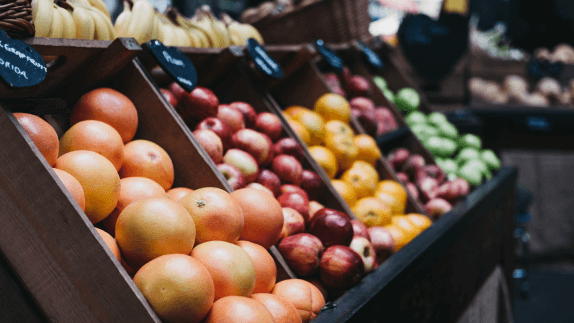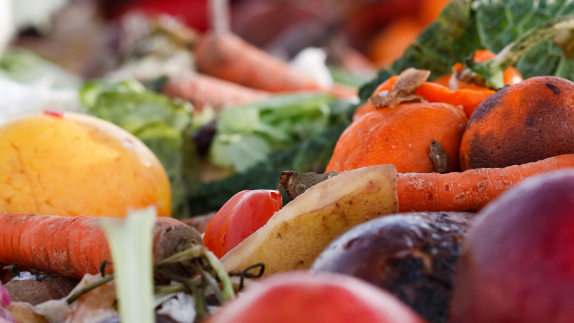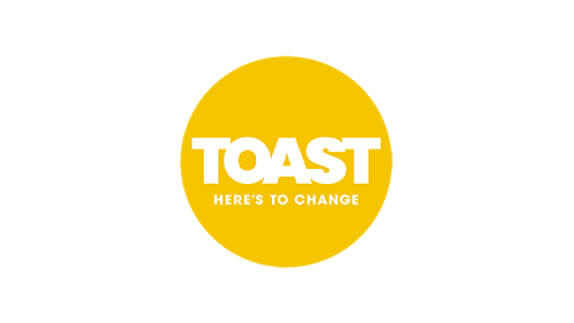
name:
Toast Ale
The Need: over 30% of food is wasted, representing a significant loss in value but also leading to many potential externalities. How can we make more effective use of our food resources?
The Solution: discarded bread can be used to replace a third of the malted grain used in beer brewing.
44% of all bread is wasted
The 2015 report Growth Within: a circular economy vision for a competitive Europe looked at the scale of structural waste in the food system in the linear economylinear economyAn economy in which finite resources are extracted to make products that are used - generally not to their full potential - and then thrown away ('take-make-waste').. In total, 31% of food produced is lost or wasted, both throughout the value chain and as consumer waste.
One of the most frequently wasted foodstuffs is bread. As a relatively cheap product with a short shelf life, bread is chucked out at an astonishing rate, as supermarket surplus as well as in the home. In fact, an incredible 44% of all bread produced in the UK is thrown away. However you look at it - taking into account the record numbers of people short of food, biological nutrients being lost from the system or from pure economics - this just doesn’t stack up.
The startup Toast Ale have an unusual and appealing idea of how to combat this problem - by brewing beer. It’s a relatively simple process, so much so that the first batch of Toast Ale was arranged in just 10 days by Founder Tristram Stuart and his team. The company start by collecting surplus bread from delis, bakeries and sandwich makers. It’s then incorporated into the brewing process with malted barley, hops, yeast and water. It doesn’t take any special technology or space-age methods, but this simple switch can replace around a third of the malted barley used for beer.
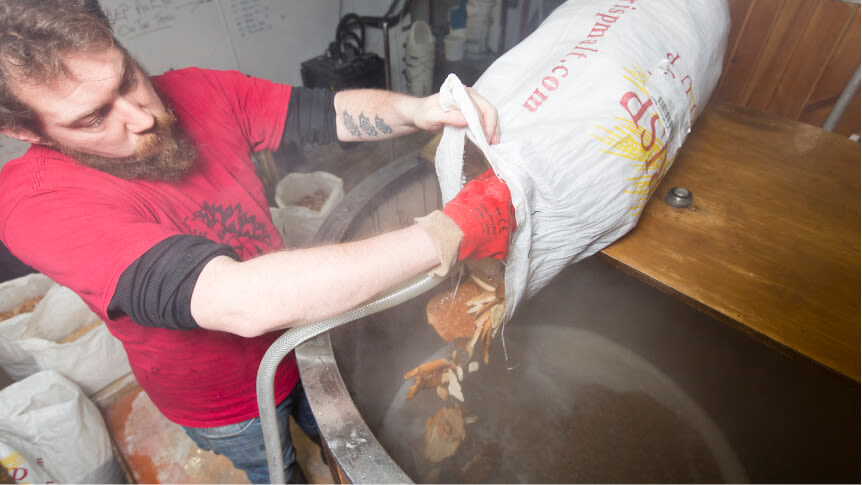
Ancient wisdom
Whilst this initiative surfs the current trends of combatting food waste and trendy craft beer, it’s far from novelty. The fairly straightforward process offers numerous benefits, namely using up and adding value to bread that would otherwise be wasted, whist displacing other resource inputs. What’s more, Toast aren’t asking brewers to reinvent the wheel, as this isn’t actually a new practice. The oldest surviving beer recipe, documented by the ancient Mesopotamians, features bread as a key ingredient.
Bread is one of the most wasted food products. This is an ancient solution that is totally scalable.
Tristram Stuart, founder of Toast Ale
A growing movement
More recently however, the Brussels Beer Project resurrected the practice with their Babylone batch, and the brewers shared their insights with Toast Ale for this first foray into beer from bread in 2015. So even though it’s not the first time this has been done, there are signs that Toast have hit upon a business model that could help this practice scale around the world. By actively sharingsharingThe use of a product by multiple users. It is a practice that retains the highest value of a product by extending its use period. the recipe for their pale ale, the startup provides the basis for replication by other breweries in collaboration with Toast, adapting to local bread available and brewing traditions. There’s an emerging enthusiasm, going beyond UK craft-beer hotspots like London and Bristol, to Iceland, South Africa and the USA. Tristram Stuart says that brewers he’s spoken to are seizing the opportunity to utilise this new and interesting ingredient to experiment with new recipes and flavours.
Whereas bread wastage makes little economic sense, Tristram says that “there’s sound business logic behind Toast, as there’s a good markup from grain to bread to beer”. But it’s a firm belief of the founder that this money shouldn’t disappear to shareholders, but instead should continue circulating to further the cause. As a result, 100% of the profits go to Feedback, an organisation that works to address food waste issues across all stages of our food system, from farm surplus caused by cosmetic standards to legislation preventing waste being used as feed.
Toast Ale is a good example of the philosophy of Feedback. Encouraging people to envisage and take steps towards a more circular economycircular economyA systems solution framework that tackles global challenges like climate change, biodiversity loss, waste, and pollution. It is based on three principles, driven by design: eliminate waste and pollution, circulate products and materials (at their highest value), and regenerate nature. “should start not with complaining, but by showing a better option”. So the team behind Toast have created a brand that is fun and vibrant, and “tells a story with that first gulp”.
For those of us whose Latin is a little rusty, the word companion is derived from the words ‘with’ and ‘bread’. It’s through communicating over a beer, made with bread, that Toast hope to make a dent on the structural food waste that is endemic in today’s linear economy. Of course, this would mean Toast Ale team is put out of business. While Tristram openly looks forward to that day, he says that “there’s a lot of beer to be made in the meantime”.
